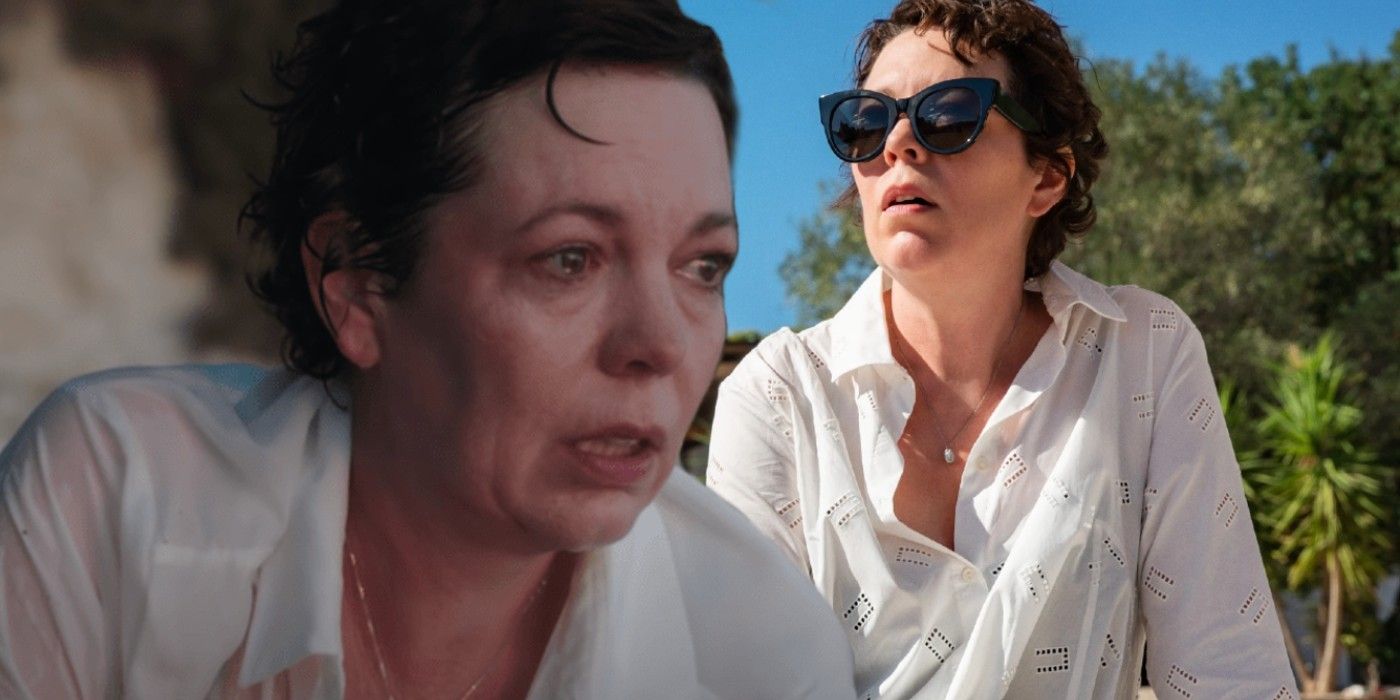Debuting on Netflix on December 31, The Lost Daughter’s mixed reviews on Rotten Tomatoes reveal that critically, The Lost Daughter was well-received, but mainstream audiences dislike the film. The Lost Daughter is Maggie Gyllenhaal’s directorial debut and has already collected dozens of awards and nominations from seemingly every known film festival including awards for Best Director, Best Screenplay, Outstanding Lead Actress, and Best Supporting Actress. It seems undeniable that, critically, The Lost Daughter is a massive hit, however, The Lost Daughter’s bad reviews from non-critics tell a far different story.
Beginning in Greece (with the island of Spetes providing stunning filming locations), The Lost Daughter follows Leda on a solo holiday. Soon after she arrives, she meets Nina, a young mother on vacation with her loud, overbearing, and mafia-tied family. Leda spends her holiday keenly observing the family, particularly Nina, whose relationship with her young daughter Elena reminds Leda of her own strained relationship with her two grown daughters, Martha and Bianca. When Elena goes missing, Leda is the one to find her and return her to Nina, but, in a shocking twist, Leda steals Elena’s beloved doll. Leda adopts the doll—cleaning it, buying it new clothes, and even sleeping with it—all while passively watching Elena’s grief and the family’s chaos over the stolen doll. Near the end of The Lost Daughter, Leda returns the doll, however, Nina, outraged by Leda’s actions, stabs Leda in the abdomen with a hatpin Leda gifted her. The Lost Daughter ends with Leda sitting on a beach after crashing her car, talking to her daughters on the phone.
The Lost Daughter’s bad reviews come almost universally from its audience score of 45% on Rotten Tomatoes—a stark contrast to the glowing 96% critical rating. The Lost Daughter’s ending specifically seems to be a point of major contention among non-critical reviewers. Audience comments suggest that the film's mixed reviews may be because many mainstream viewers did not understand or appreciate The Lost Daughter’s ending. Furthermore, the discrepancy between the two types of ratings may be largely due to the motives behind the categories of reviews with critics assessing the film as art, while audiences seem focused largely on entertainment value.
As a critic’s role is to assess the craft of filmmaking and how every aspect lends to the final product, The Lost Daughter’s reviews from critics focus on multiple artistic elements like this review from K. Austin Collins in Rolling Stone (via Rotten Tomatoes), “Colman brings Ferrante's creation to life with all the withering pathos she deserves. Gyllenhaal catches it handsomely, awe-struck, as if even she didn't know how painfully real this woman Leda could seem or, in Colman's hands, be.” This review highlights the distinction between the two types of reviews and how the critics see the film as multi-faceted creation of art—commenting on Gyllenhaal’s directing, the film’s accuracy in adaptation, and Coleman’s portrayal of The Lost Daughter’s character Leda. This approach is contrary to mainstream audiences that are invested in entertainment value, proven by a collection of reviews like this one from Karen C that claims, “I was always waiting for something to connect and make sense. I spent over 2 hours with a quizzical look on my face realizing I'll never get those two hours back. A totally unsatisfactory entertainment experience,” and many other reviews that claim the film was “pointless” and “went nowhere.”
The main complaint found in The Lost Daughter’s negative reviews, however, is that mainstream viewers did not understand (or care for) the film’s ending. Viewers seem to concur overwhelmingly with this review from user Pat R: “boring boring boring. No real plot. Terrible ending, like they couldn't figure out how to end it so they just stopped filming.” One reviewer went so far as to compare The Lost Daughter to The Power of the Dog, which has far higher audience ratings, relating the latter's success to the redemption of its lead character.
These reviews contrast critical reviews like that of Alissa Wilkinson from Vox who says The Lost Daughter ending “is deeply ambiguous, neither punishing nor condoning its characters' behavior. It simply asks us to sit with them - to pay them the respect of attention, and learn something about ourselves in the process.” This leads to the conclusion that, while critics review based on craft and art, mainstream audiences seek to be entertained, creating a vast difference in the motives by which the two types of reviews are created, and explains why The Lost Daughter reviews are so mixed.


